
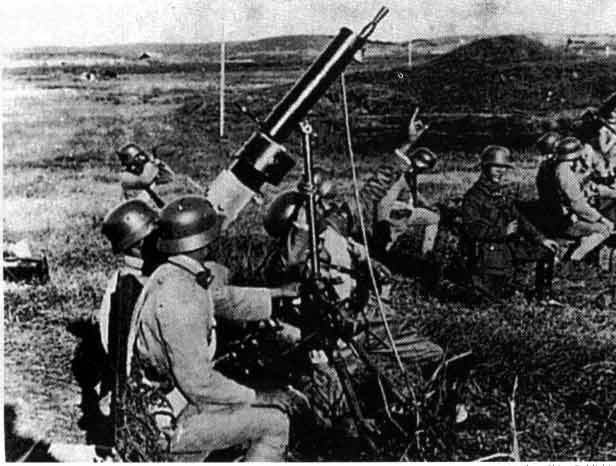

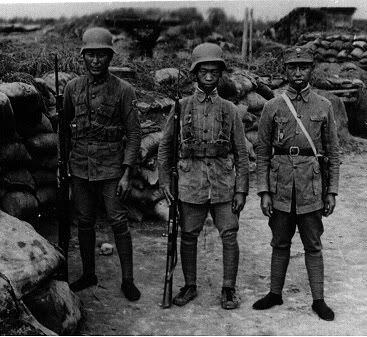





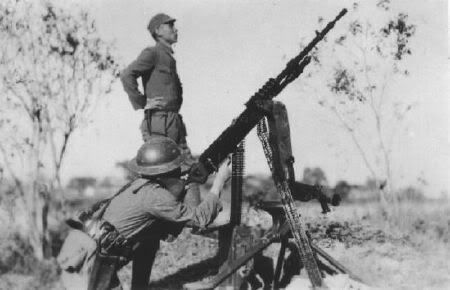

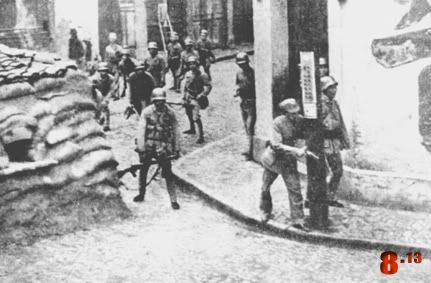


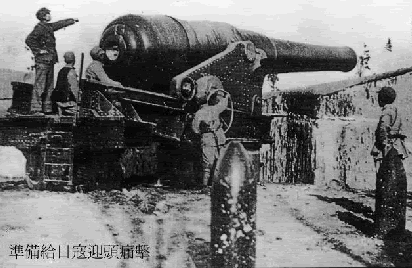
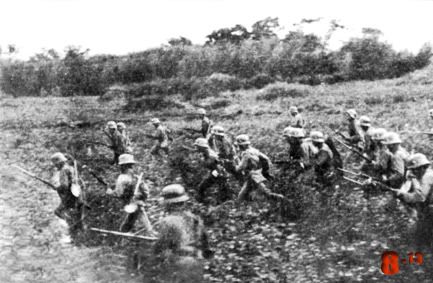
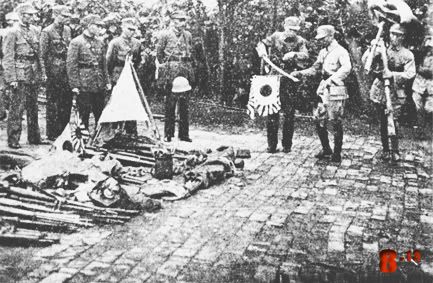




When I read the western historic books which talk about the WW II, I cannot find the pages of the Sino-Japan war. Maybe they just know Chinese troops fought against Japanese in Burma. Nobody knows that about 35,000,000 Chinese include 6,500,000 soldiers died in that war. We fought for 8 years and killed 1,050,000 Japanese. To compare with France only resisted for 6 weeks, China has triey its best!
I feel a little bit down since Chinese military has no its own space.
I understand what you’re saying, but I don’t know the reasons. Possibly because there are so many.
I’ve never understood why there isn’t a clearer understanding and explanation of the Chinese aspect of the war with Japan in the West.
For that matter, I’ve never understood why in many Western histories there isn’t a clear understanding or explanation of the reasons why the West’s war with Japan was, in many respects, a war initiated by Japan as a contest with the West (including Russia for the purposes of this discussion) for colonial domination and exploitation of China, which goes back long before WWII.
For some reason the Chinese war against Japan has been largely ignored in Western histories, apart from the relevance of Burma as a supply road; Gen Stillwell; Claire Chennault and so on. All of which is from a Western perspective of Western involvement in supporting Chinese forces.
I think part of the problem is that China wasn’t just fighting the Japanese but was engaged in a confusing and intermittent civil war at the same time, with some distressing shifts in alliances between Chinese forces and, at times, with Chinese forces going over to Japan.
The scale of events; geography; and people involved makes it very hard to grasp. China’s situation or participation wasn’t like any of the other Allies, or Axis, at the same time, which all had a single national government committed to using their national resources against the external enemy.
China’s situation was a bit like America trying to run the American Civil War in 1941-45, rather than 1861-65, while fighting Japan at the same time. It’s beyond comprehension.
Another part of the problem is that China wasn’t a united country with a single voice, not least by having its nominal emperor as a puppet ruler in Manchukuo while Chiang and Mao and sundry warlords all claimed a voice.
Another part is that Chiang was a ruthless crook who ripped off the West remorselessly during the war and was not a reliable ally. It didn’t stop the West propping him up years later in Taiwan to oppose the communists.
Another part is that Mao’s forces did brilliant work, both militarily and socially, and far better than Chiang’s forces did but after the war the Western opposition to communism could not acknowledge that.
Another part is that China after 1949 became a closed society and didn’t engage with the West in the same way that the USSR did, so less was known about it.
A big part is that it is just such a hugely confusing history that it doesn’t have a neat good guys and bad guys division leading steadily to a clear result that it’s beyond explanation for anyone except the most dedicated scholar.
Maybe an even bigger part is that China didn’t inflict steady and convincing defeats on Japan so that it could be seen as a victor. While the Allies were advancing through the islands in 1944, the Japanese forces in China were making great gains. If China had driven Japan back into the sea there might be a different view, because there would be a clear and simple victory.
I’ve tried to understand the background and the events at times but I’ve never been able to find a clear and concise explanation in a history written in English.
On the other hand I’ve read plenty of backgrounds, such as the early chapters in John Costello’s excellent The Pacific War, about the importance of China to the Western powers exploiting it but nobody’s ever got it down to a clear explanation of the economic and strategic evolution of China in Western and Japanese thinking.
So, I’m still confused. And ignorant.
On a separate point, all the Chinese who died from 1931 weren’t killed by the Japanese. There was an awful lot of Chinese against Chinese warfare going on during that period.
I hope I don’t reply late. I am really afraid my poor English that cannot explain clearly.
Thank you very much, Rising Sun, because your reply seems you do a really good job in the Chinese history. I appreciate for that.
You list many reasons to explain why Chinese’s effort during the WW 2 is ignored. I agree with that even I cannot accept it emotionally.
In my opinion, there are some reasons:
Some tips of the Sino-Japan War. I hope can help you.
Finally, thank Rising Sun. I will post some pictures here to introduce the Chinese military. Thank you, everybody.
Two more pics:

Communications trench, Shanghai, 1937.

Chinese unit travels by boat, Shanghai warzone.
Note the german-style headgear.
That machinegun, unless I’m mistaken, is the French FM24.
The English language books that have been published do not remain in print very long. A few thousand copies, usually buried in a private or a university library. Edgar Snows books are rare now. "Stillwell and The American Experience in China’ was briefly known and long forgotten. You have to dig deep into the academic shelves to find any of the items written on China. Histories appealing to the popular audience are very rare. Pearl Buck had the stature to sell some history books on China, but spent most of her time writing novels.
You are mistaken, it is the Czech zb.30, it is most famous as being the weapon the inspired the Bren LMG.
My compliments Rising Sun, it was a great reply!
However much a westerner (if not everybody) is interested in the China during the war years, she´ll remain confused. The matter was confused as you wrote, and I guess very few western historians were Chinese speaking, or interested in doing research in China 1945-49, and were probably not welcome later than that anyway.
Concerning the picture with the big gun and a shell in the foreground: can anybody tell me about that weapon?
Considering the way of those times and the prejudiced attitudes of Americans to Chinese, I find it no surprise that good, accurate accounts of the Chinese in the war is rare.
Considering the Brits, French, American and everyone else wanted a piece of the pie from that country it’s no wonder.
I am confused about the pics from the OP. They appear to be wearing German helmets. Would that be correct for the Chinese then or am I mistaken?
Up until the 1930s, the Chinese Army was primarily getting its advice from German officers, hence the uniform similarities…
Oh excellent pics ZSTAR
Thank you
I,ve never seen such photos befor.
You absolutly right greathakka.
It was pure ideoligy in a basis of such historical ignorance in the West ( in the East as well)
Besides actully the CHinas’society are relatively self-determined and closed for the countries around.
As i remember, you are FIRST Chinaman , who post here 
Good sign- finally we had the Chinas member here.
So i hope you will tell us MORE about YOUR country and particaulery ww2 in China.
So good luck you to participate in our forum.
BTW from what part of China are you?Communist or Taiwan?
Thanks for your replies, I guess it’s good to inform people who don’t know much about the Sino-Japanese, I certainly thought it was significant. It definitely changed China for good as well as Asia. Anyway here’s some more pictures of interest.




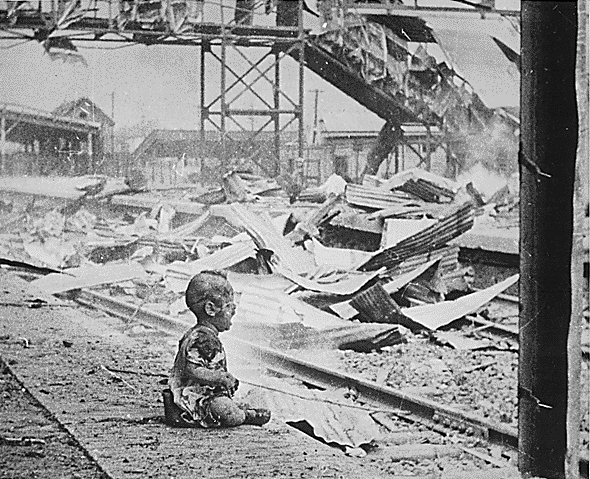
















Rate pictures of Hitler discussing Military aid with a Chinese ambassador.


Excellent pics!
I was wondering how many logistical problems the Chinese military had with the “hodgepodge” (different types) of weapons, and what the typical weapons can calibers of small arms ammunition were used…
By the way, despite what things might look like from the photo of the Chinese Ambassador with Herr Hitler, the Nationalist Chinese realized what the Nazis were about and weren’t too impressed. If one is fighting a well organized, well equipped and fanatical enemy one gets one’s weapons where one can.
Before the Tigers: China’s Air Forces in the Struggle Against Japan
http://worldatwar.net/chandelle/v2/v2n2/china30s.html
Heinkel He-111 in Chinese Nationalist Airforce service
http://www.aviapress.com/viewonekit.htm?ROD-021
Tupolev TB-3 in Chinese Nationalist Airforce service
http://www.aviapress.com/viewonekit.htm?ICM-72092
The CACW Provisional
http://www.sinoam.com/photo_gallery_5-1.htm
As for General Chiang Kai-Shek being a “criminal”, given that China had been ground down for years as a result of the inept rule of the Royal dynasty and the predations of Western interests, e.g. the British fighting a War in China for the right to sell opium hardly ranks as the high point of British Victorian moral virtue, it is unlikely that anyone who would obtain political power in such an environment would have lily white hands.
http://en.wikipedia.org/wiki/Chiang_Kai-shek
That said, better a “criminal” like Chiang Kai Shek than a mass murdering psychopath and/or nut-case like the great helmsman Chairman Mao Tse Tung.
http://en.wikipedia.org/wiki/Great_Chinese_Famine
Dick Wilson’s “When Tigers Fight” is the best English language book on the Sino Japanese War I know of.
http://www.amazon.com/When-Tigers-Fight-Sino-Japanese-1937-1945/dp/067076003X
Lin Yutang is an excelent author from which to get a taste of what happened to China during the War years
http://en.wikipedia.org/wiki/Lin_Yutang
http://www.amazon.com/Vigil-Nation-Lin-Yutang/dp/B000NYEGTO
Best and Warm Regards
Adrian